How to grow mangoes from seed
Learn how to grow mangoes from seed and create your own tropical paradise filled with delicious fruit trees

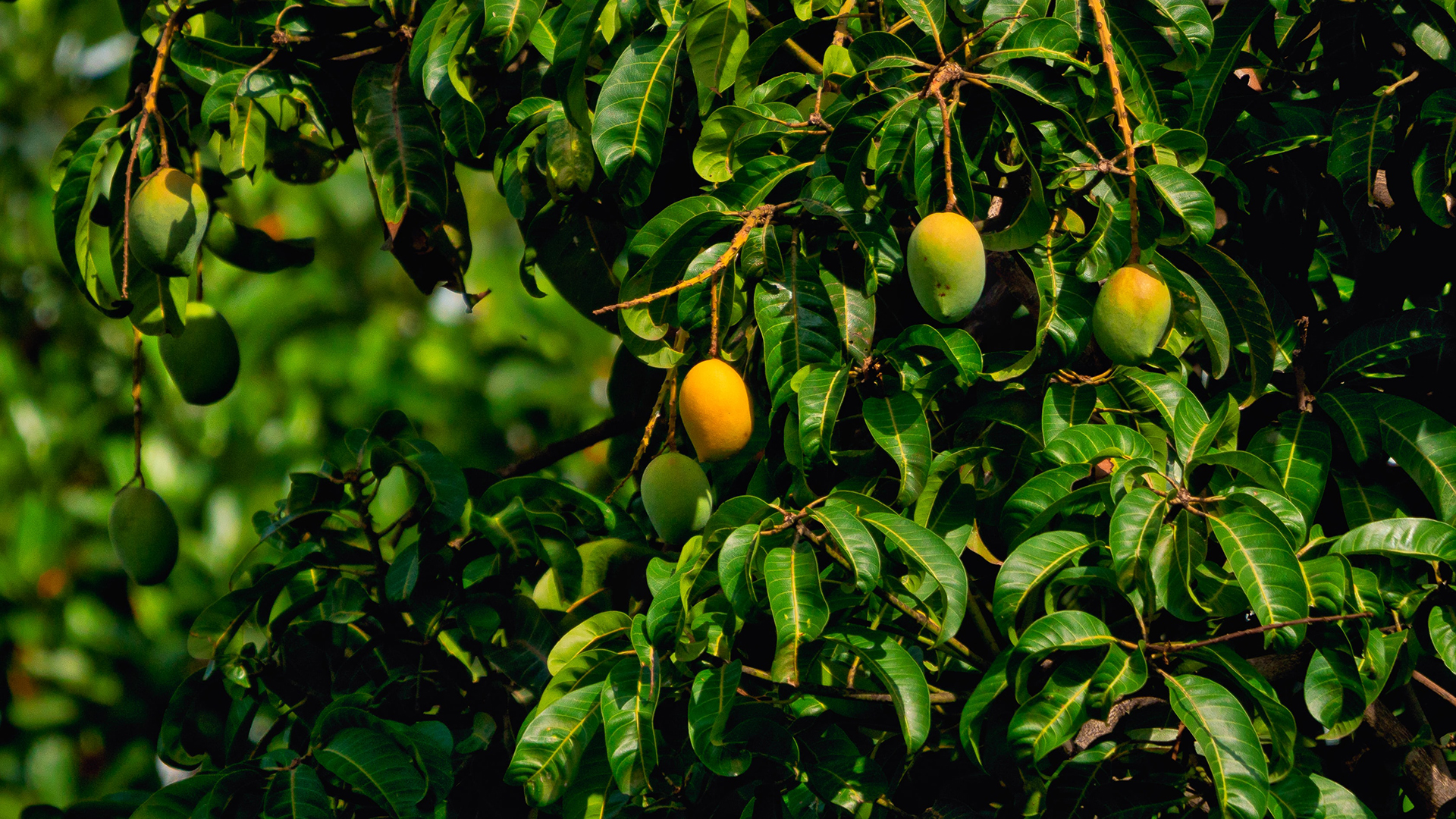
Design expertise in your inbox – from inspiring decorating ideas and beautiful celebrity homes to practical gardening advice and shopping round-ups.
You are now subscribed
Your newsletter sign-up was successful
Want to add more newsletters?

Twice a week
Homes&Gardens
The ultimate interior design resource from the world's leading experts - discover inspiring decorating ideas, color scheming know-how, garden inspiration and shopping expertise.

Once a week
In The Loop from Next In Design
Members of the Next in Design Circle will receive In the Loop, our weekly email filled with trade news, names to know and spotlight moments. Together we’re building a brighter design future.

Twice a week
Cucina
Whether you’re passionate about hosting exquisite dinners, experimenting with culinary trends, or perfecting your kitchen's design with timeless elegance and innovative functionality, this newsletter is here to inspire
If you're wondering how to grow mangoes from seed, there are many different approaches available. From wrapping a mango seed in a paper towel to planting the seed directly into the soil, we've rounded up the best options so that you can pick the one that works best for you.
If you are thinking about growing a mango from seed, however, then there are several things you must consider before you start. Here, we take you through all the steps to successfully adding mangoes to your kitchen garden ideas.
How to grow mangoes from seed
Firstly, growing a mango from seed is unlikely to yield fruit unless you live in an area where mango trees grow naturally. In order to fruit, they require a consistent hot and humid climate. This is very difficult to provide in the house or garden. You may have luck if you grow your mango in the greenhouse, though it is not guaranteed. Instead, just enjoy your mango tree's luscious foliage as a houseplant.
Secondly, success rates will vary so it's best to plant several seeds at the same time to reduce the risk of disappointment by pinning your hopes on a single seed.
However, should you get a beautiful little mango seedling, it'll soon grow into a stunning tropical houseplant that will add a taste of the tropics to any room in your home.
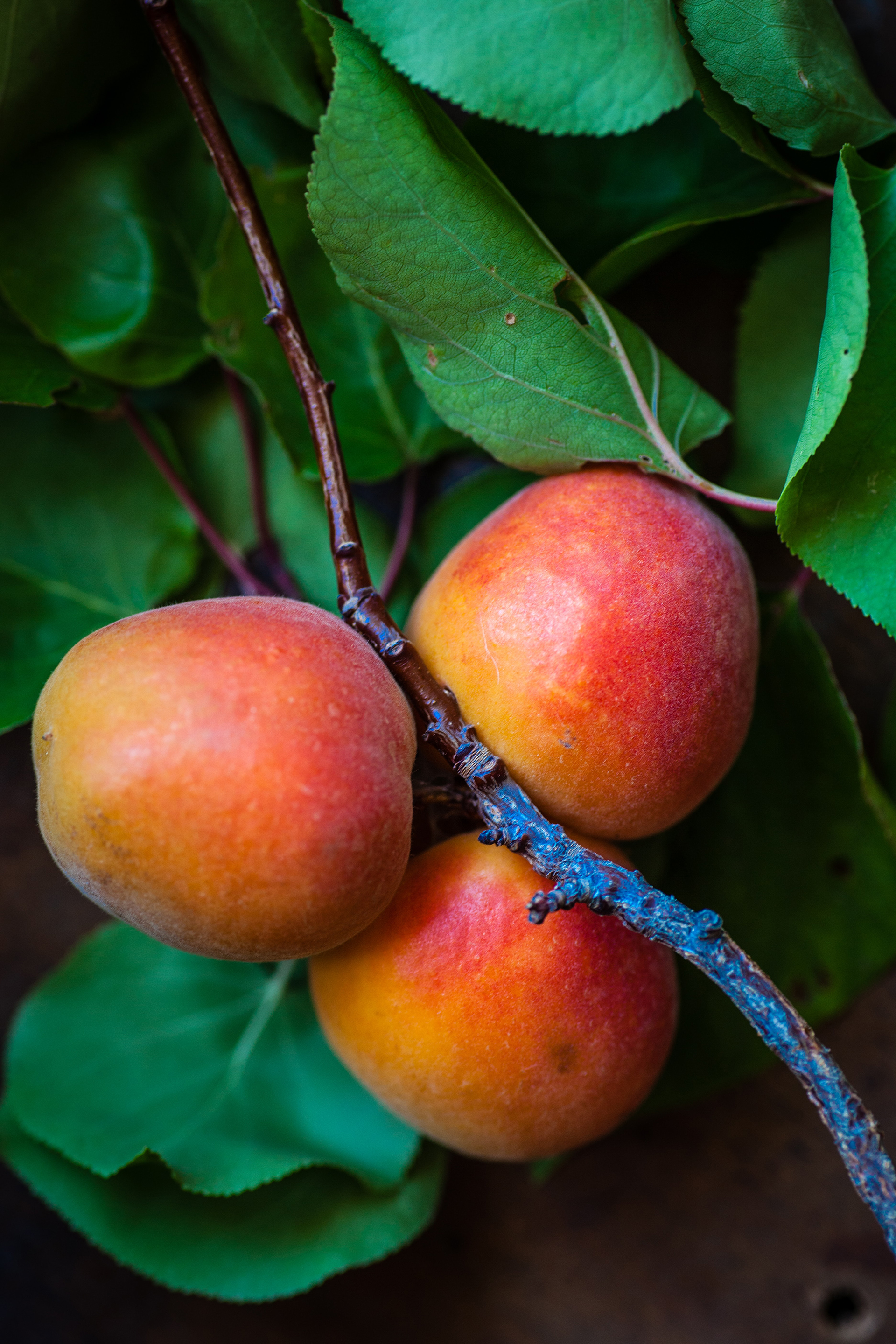
How to grow mangoes from seed in a paper towel
Growing mangoes from seed in a paper towel is one of the most popular methods. Fairly straightforward, with a good success rate, it's also an ideal method if you're not especially patient and want to check on the progress of your seed – try to resist from unwrapping it too often though.
This is also the lowest cost method for starting out as it simply requires a couple of paper towels, a ziploc bag and a mango seed.
Design expertise in your inbox – from inspiring decorating ideas and beautiful celebrity homes to practical gardening advice and shopping round-ups.
Follow our step by step guide to find out how to grow mangoes from seed in a paper towel.
- Having separated the mango flesh from the seed – like you would when preparing a mango to eat, scrub the seed husk to remove the flesh.
- You can do this with a standard kitchen knife, in exactly the same way you would peel a potato.
- Once you've cleaned the husk it will be white and a little furry.
- Then cut a small knick in the top of the husk (the thin end) and fully submerge in a glass of water for 24 hours.
- After 24 hours, take the husk out of the water.
- You can either remove the seed from the husk (you can do this by cutting the edge of the husk and then prizing it open with a knife) or you can keep the seed in the husk and simply widen the nick.
- Wrap your husk or seed in a damp paper towel.
- Place the wrapped seed in a plastic bag that has got small air-holes cut into it.
- Keep the seed warm and moist to help it germinate. You should start to see signs of growth within a few days.
- Once the seed has germinated and produced both a root and a shoot, then plant in compost and water well.
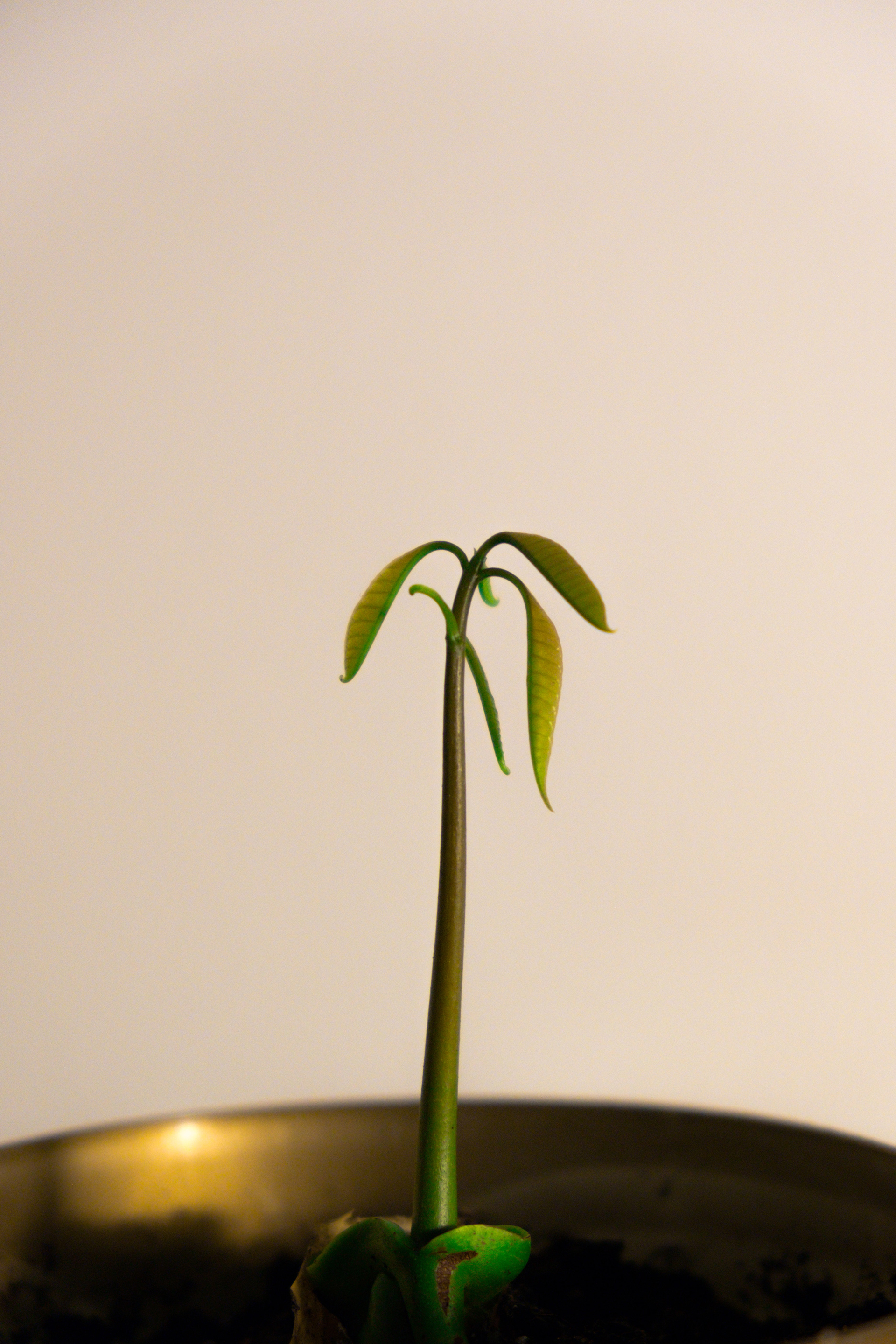
How to grow mangoes from seed directly into the soil
Learning how to grow mangoes from seed by planting directly into the soil is one of the lowest maintenance ways to grow mangoes as, after the initial planting, it will not need repotting until it has outgrown its pot. You will know when it needs repotting as its roots will start to appear through the hole at the bottom. This will take several months at the earliest.
- Start by separating your husk from the flesh as before (put the fruit aside to eat later).
- Use kitchen scissors, nail clippers or a kitchen knife to make a cut in the side of the husk, then use a knife to break open the husk to reveal the seed inside.
- Having done this, soak the seed in water overnight.
- The following day prepare your compost. Pick a compost – ideally ericaceous – with good drainage as the seed will rot if the soil is too wet.
- Fill a pot with the compost leaving a few inches free.
- Press the seed into the compost so that looks is as if it is stood up on its side.
- Add more compost to fill the pot.
- Put your pot in a warm, dark place.
- Check regularly and ensure the soil does not dry out.
- When the shoot breaks the surface of the soil, move the pot to a sunny windowsill where it can continue to grow.
How to grow mangoes from seed in water
If you want a low-effort way to grow a mango seed then learning how to grow mangoes from seed in water is the perfect method for you.
If you've ever grown avocado from a stone, this method will be familiar to you. It's also the same method for growing a pineapple.
Having removed the seed from the husk, as directed above, press two toothpicks about halfway up, either-side of the seed. Then fill a large drinking glass with water and submerge the bottom half of the seed, with the toothpicks holding the top half of the seed above the water.
Change the water every week to keep it clean and prevent any bacterial growth. It will take between one and three weeks to start to see signs of growth.
Let your mango seed continue to grow like this until it gets its second set of leaves, then plant in compost with the seed below the surface and the stem above.
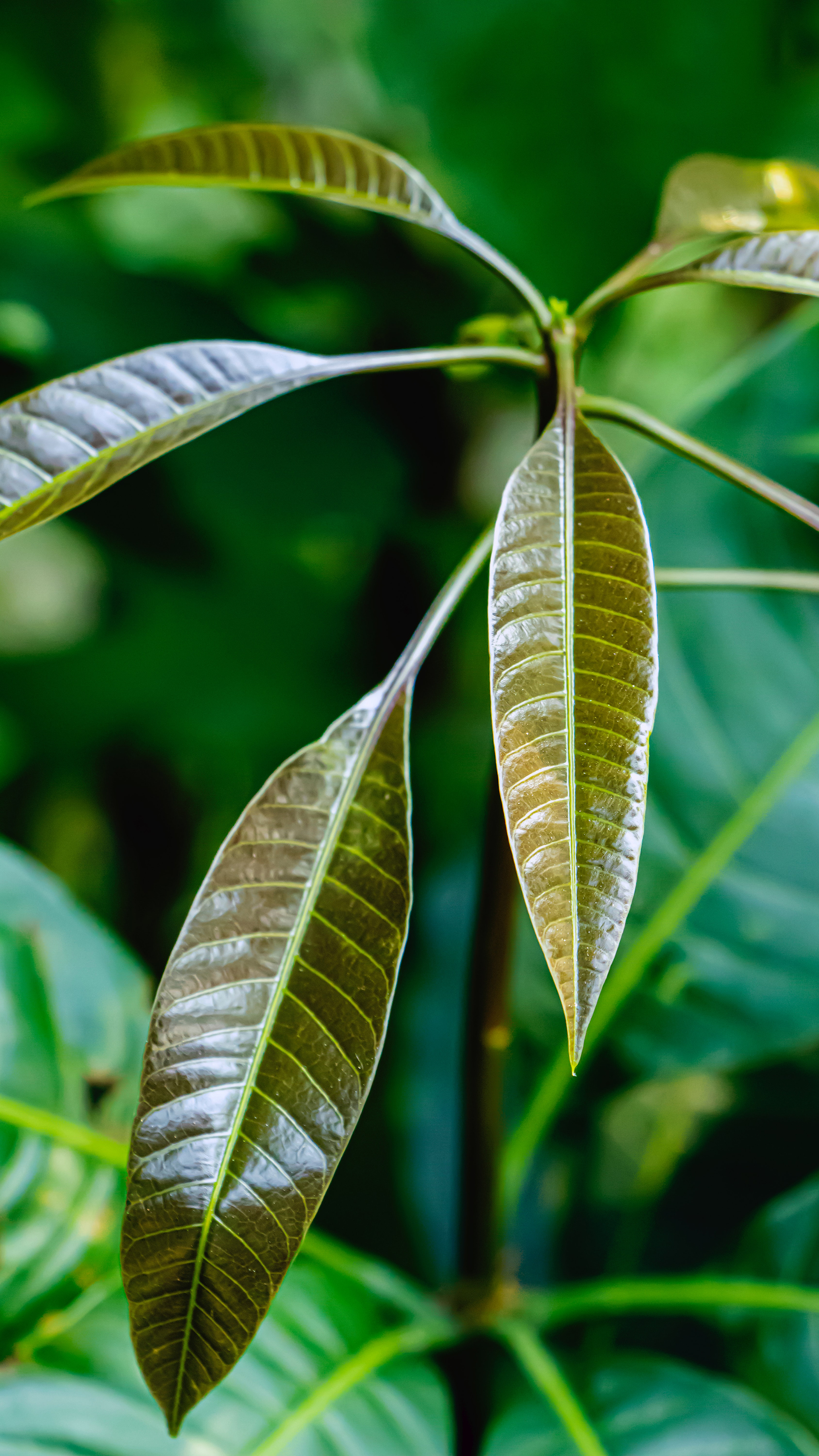
Easiest way to grow mangoes from seed
If you're short of time, then this method for how to grow mangoes from seed will certainly appeal.
Tom Siddons, gardener at Sleepy Lizard Avocado Farm shares his expert tips in his video. He starts by filling a shallow container with soil and then cuts the two halves off the mango fruit, either side of the seed. Finally, 'lay the center with the seed on the top of the soil and let mother nature do her work,' he suggests.
Water occasionally and keep in a warm place and you'll have a beautiful mango tree in no time.
How long does it take to grow a mango from seed?
It takes somewhere between five and eight years to grow a mango plant from seed. However, you will get a little seedling appear within a few weeks. Mango trees can grow up to 20ft in the wild, but if you grow your mango tree in a pot and prune it when necessary, then you can keep it to a much more manageable size.
How to care for a mango
Caring for a mango tree is fairly easy, especially if grown inside. Water regularly, when the soil is dry and feed with a high potassium fertilizer like liquid seaweed in the summer.
'Repot the plant as necessary and then annually when it's in its final pot,' advises Holly Farrell in her book Plants from Pips.
Holly also recommends to 'take the top bud out once it's a year old' as this will encourage the plant to adopt a more bushy and aesthetically appealing shape – it will also stop your mango tree from growing too tall.
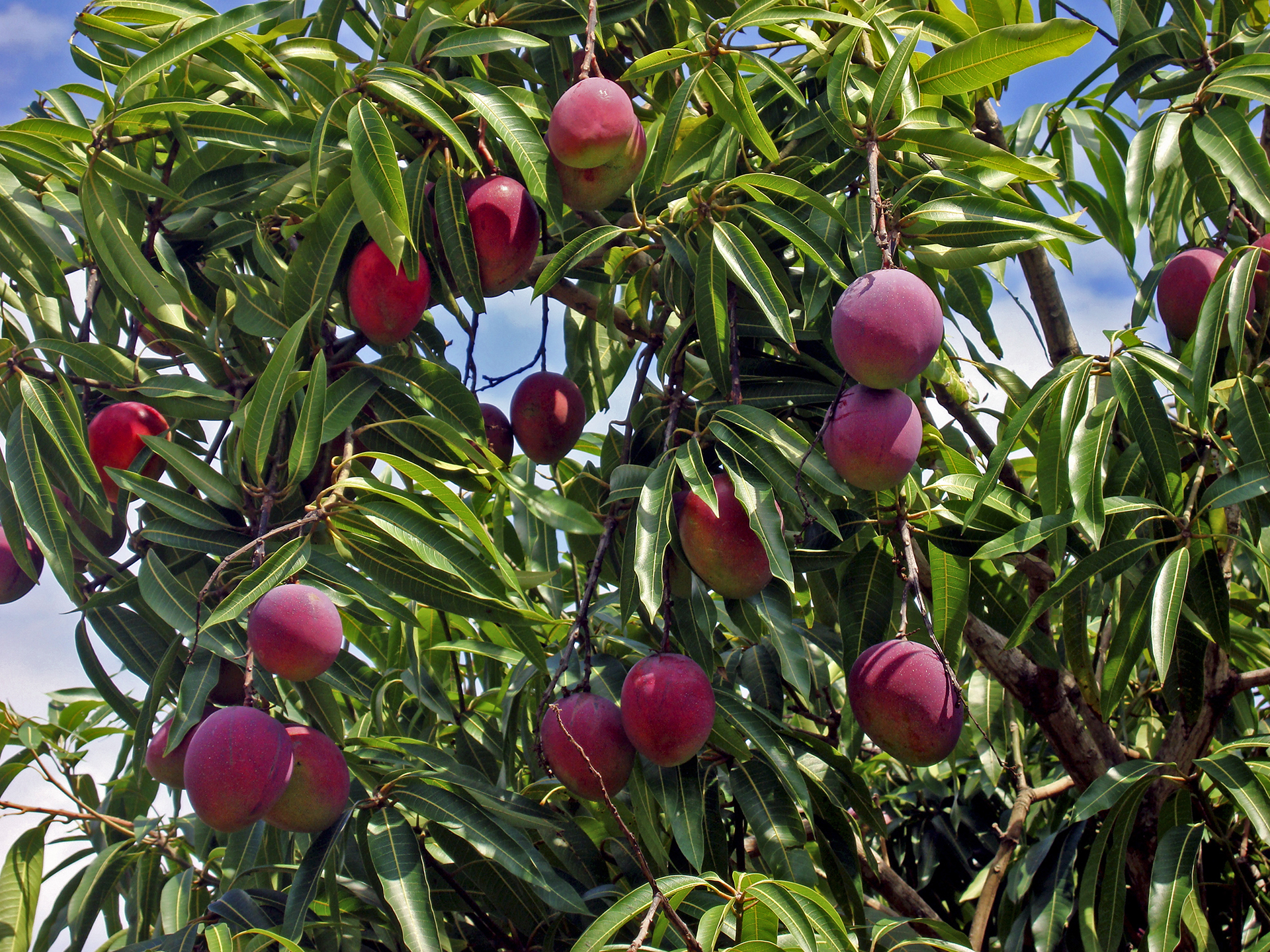
Can a broken mango seed grow?
No, a broken mango seed cannot grow. If you don't have the complete seed, it will either be missing the root or sprout part – both of which are vital for growth. If your seed is broken, you are better off buying a new mango, enjoying its delicious fruit and starting again.
Which side of the mango seed goes down?
Plant the mango seed point side down, allowing the hump at the top to stick out of the soil a little. If you have germinated your seed in water or a paper towel, this bit is easier as you just want your mango seed roots to go down and the shoot to point up, above the soil.
This feature was created by H&G's sister brand, Period Living magazine
Subscribe to Period Living for more inspiration
Period Living is the UK's best-selling period homes magazine. A subscription provides you with all you need to know about caring for and improving a traditional house and garden.

Having graduated with a first class degree in English Literature, Holly started her career as a features writer and sub-editor at Period Living magazine, Homes & Gardens' sister title. Working on Period Living brought with it insight into the complexities of owning and caring for period homes, from interior decorating through to choosing the right windows and the challenges of extending. This has led to a passion for traditional interiors, particularly the country-look. Writing for the Homes & Gardens website as a content editor, alongside regular features for Period Living and Country Homes & Interiors magazines, has enabled her to broaden her writing to incorporate her interests in gardening, wildlife and nature.
